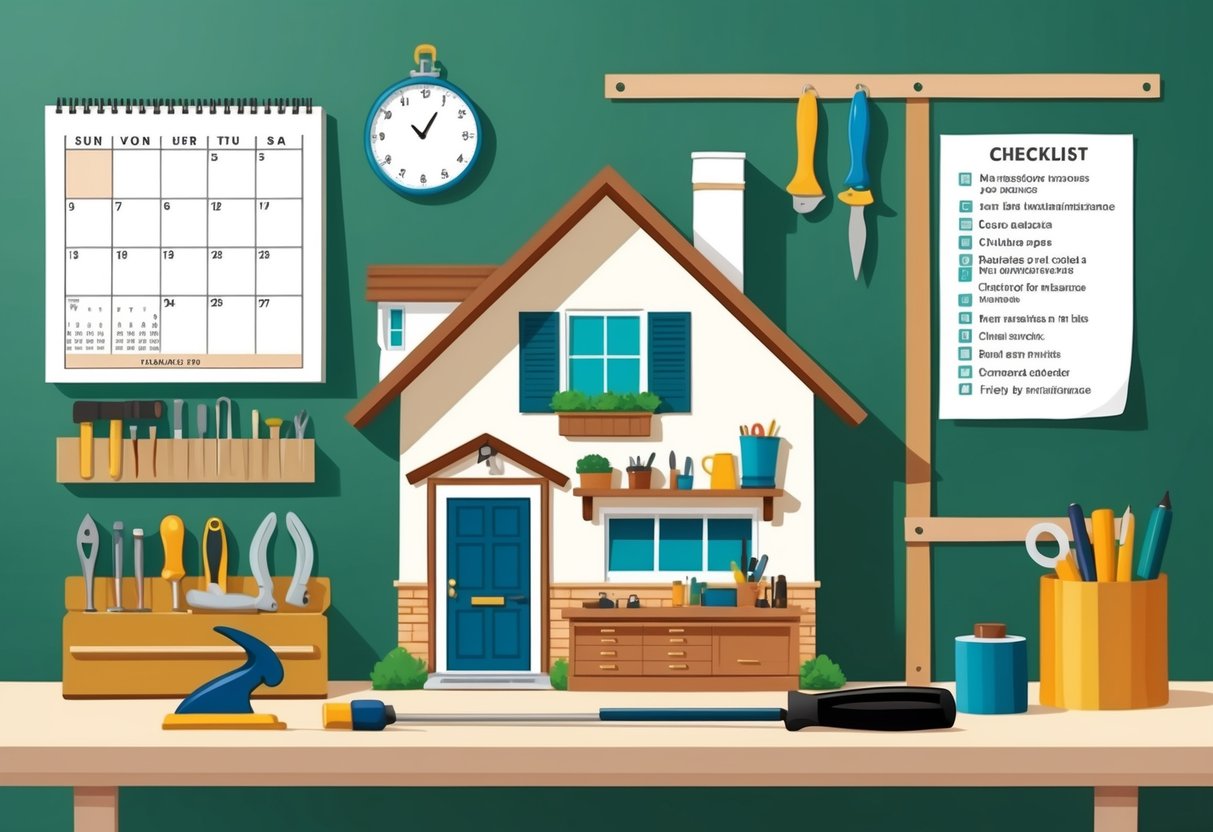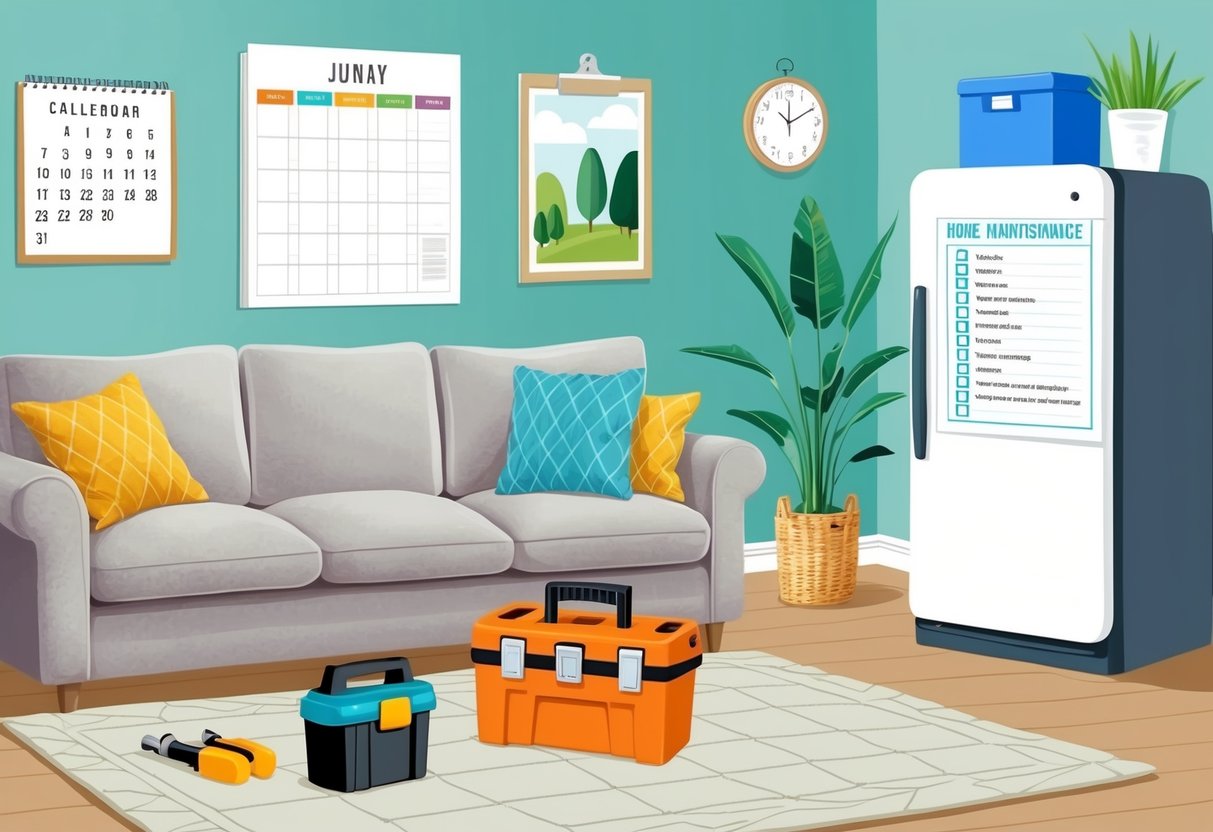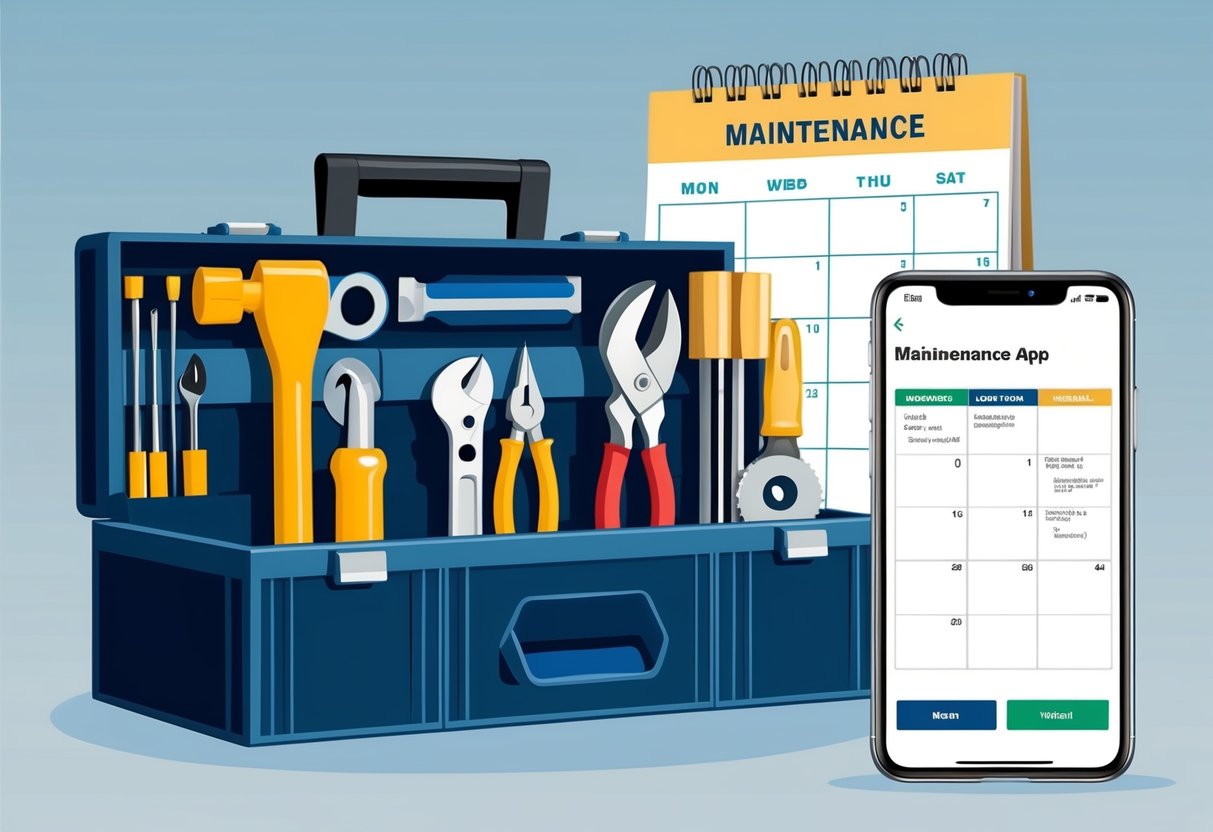
Hiring Help: When to Consult Professionals

Certain tasks require expertise, licensing, or specialized tools that may go beyond what many homeowners can safely handle. Consulting professionals at the right time helps prevent expensive repairs, voided warranties, or safety hazards.
Working with Property Managers
Property managers bring professional oversight to routine and preventative maintenance. They organize schedules for inspections, arrange for repairs, and manage service contracts, which is particularly valuable for owners of rental or multi-unit properties.
Homeowners without the time or skill to oversee maintenance benefit from this expertise. Property managers may coordinate HVAC checkups, plumbing assessments, and appliance servicing.
They often use detailed maintenance checklists and digital platforms to ensure nothing is missed. This proactive approach reduces the risk of emergency repairs and minimizes tenant complaints.
The costs for property management usually include a percentage of rental income or a flat management fee, which is offset by fewer costly incidents and improved property value.
Choosing Qualified Contractors
Selecting licensed and insured contractors for specialized tasks like electrical work, roofing, or major plumbing is essential for quality results and safety. Unqualified handymen or unlicensed help frequently lead to incomplete work or safety violations.
Homeowners should request proof of licensing and references before agreeing to a contract. Reviewing online ratings and comparing quotes from multiple providers helps ensure fair pricing and accountability.
Written contracts and warranties also protect against subpar workmanship and financial disputes. A good contractor will provide clear timelines, detailed cost estimates, and explain if permits are required.
For more guidance, homeowners can refer to detailed recommendations for creating a maintenance schedule and hiring help.
Understanding Insurance and Claims
Maintenance tasks can impact homeowners insurance and filing claims. For example, neglecting routine roof inspections can lead to denied water damage claims if insurers determine the loss resulted from owner negligence.
Keeping detailed maintenance records and receipts helps streamline the claims process and provides evidence of responsible property management. It is crucial for homeowners to understand their insurance policy’s requirements regarding preventative maintenance.
Failure to comply can result in unexpected costs if a claim is denied. Contacting the insurance provider before making repairs or upgrades ensures all work meets policy standards and documentation is complete for any future claims.
Tools and Technology for Streamlined Maintenance

Efficient home maintenance relies on using the best tools and technology to manage tasks, minimize costs, and prevent unexpected problems. Homeowners can leverage digital solutions, smart devices, and the right toolkit to simplify regular checks and repairs.
Home Maintenance Apps and Digital Schedulers
Home maintenance apps and digital schedulers help users track tasks like HVAC filter replacement, gutter cleaning, roof inspections, and seasonal appliance checks. Many of these platforms offer calendar integration, push notifications, and inventory lists for supplies, ensuring nothing is overlooked.
Some popular choices include HomeZada, Centriq, and BrightNest, which let users create custom schedules for daily, monthly, and annual tasks. By having automated reminders and tracking completed work, homeowners can avoid missed repairs that often lead to expensive fixes later.
Several apps also provide educational resources and how-to guides for basic home repairs. Customizing schedules to match a property’s needs helps extend the lifespan of systems and appliances, reducing the overall cost of ownership.
Using preventive maintenance plan software also streamlines organization for more complex homes.
Smart Detectors and Sensors
Smart detectors and sensors offer real-time monitoring of critical home systems. Devices such as water leak detectors, smoke and carbon monoxide alarms, and temperature monitors can send instant alerts to smartphones, helping prevent major damage.
For example:
-
Smart water sensors can be placed under sinks, behind washing machines, or near water heaters. They quickly detect leaks and let owners respond before extensive water damage occurs.
-
Wireless smoke and CO detectors integrate with home networks, ensuring timely alerts and remote monitoring.
-
Wi-Fi-enabled thermostats and humidity sensors help optimize energy usage, maintain comfortable indoor environments, and catch issues like frozen pipes or excess moisture.
Integrating these devices automates essential monitoring, keeps homeowners informed, and decreases the likelihood of costly repairs from undetected problems.
Essential Tools for Homeowners
A reliable toolkit is fundamental for DIY home maintenance and responding to routine repair needs. The basics should include a cordless drill, hammer, adjustable wrench, utility knife, pliers, measuring tape, screwdrivers (flathead and Phillips), and a level.
Other useful items are a stud finder, flashlight or headlamp, safety gloves, and a sturdy ladder for reaching gutters or rooflines. Keeping a small collection of screws, nails, wall anchors, and washers handy is also practical for quick fixes.
Labeling and organizing tools with bins or pegboards helps reduce time spent searching for equipment. For more advanced home maintenance tasks, such as electrical or plumbing work, investing in specialty tools or consulting with a licensed professional may be necessary to ensure safe and lasting repairs.